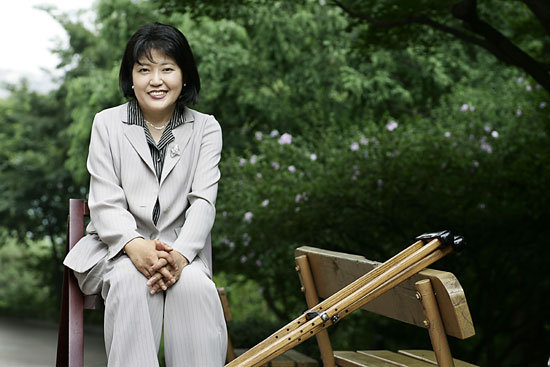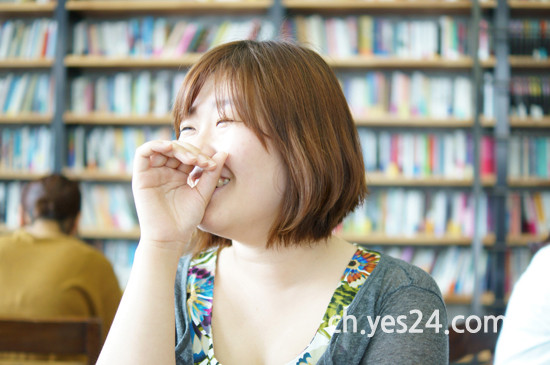
When a new semester starts, campus is always bustling and lively. Everywhere you look, there are shining faces and gorgeous smiles overflowing with hope and joy. Students seem happy just to be alive, and you can feel that spring has finally arrived.
Without realizing it, in the steady change of seasons, I’ve reached an age where I’ve started envying the students I see on campus.
As some poet once said, there is a course to life where youthfulness lies at the end—one that comes after reaching 60. Those who reach it are truly blessed because they have a youthfulness without the uncertainty and anguish over the vague direction which lies ahead. Instead, as their bodies weaken and their senses fade, they have finally learned enough about life to begin enjoying it deeply.
There are, of course, young people who will prematurely claim to have an understanding of life; those who have all the answers, those who are detached, and yet proudly put on friendly smiles. On those kinds of people, the smile is somehow awkward and unfitting. Youth is a period for going about with endless questions and a quizzical expression on your face. It is a time that is spectacular and mysterious because there exists a simultaneous hope and fear about the future.
When I teach English composition to students, I always make them keep a journal which I collect and read once a month. Maybe because the students are free to choose their own topics, their own sentence style, rather than being contrived or overly bookish, their writing is flowing and natural.
While part of the reason behind forcing students to keep a journal in English is so that they have more opportunities to practice, another reason for the assignment is out of pure selfishness on my part.
I want to know what kinds of thoughts are going through the minds of the students I make eye contact with for a whole semester. I want to know what is happening in their daily lives, and I want to relive my own youth by proxy.
Even knowing ahead of time that I’ll be reading the journals, students express themselves openly and honestly; instead of keeping simple journals, some write letters directly asking me for advice. Their journals consist mostly of a general set of themes: study difficulties, university clubs, family life, and of course, love.
When it comes to love, their writing often deals with pain, worry, and fear over crushes. They’re afraid of being rejected for not being as handsome or as pretty as others, for being too short, for coming from poorer families, for being too shy, etc. — there are a lot of reasons why they stay alone with thoughts of their crush, feeling miserable and falling into extreme self-consciousness.
What could I possibly tell them? What I feel is unfortunate is that they’re so absorbed by their sadness that they fail to realize just how important it is allow yourself to get hurt. Crushes are a privilege of being young–an obligation of being young.
At that age, I nursed crushes and secret feelings, experienced sadness, had dreams shattered, and worried. All the while, the agony of life continued collecting in my heart without exception as tears dropped and I laid bare my troubled mind in my journal.
But having now reached middle age, where each day passes routinely, once painful crushes are now remembered with a dull sense of longing.
I reached 40 before I knew it, and now, after having acquired some capacity for perspective on life, I’m at an age where I can create opportunities for others. But when people hear or see the number 40, no one feels the least bit of envy–and that aspect makes it sad.
It’s as if when looking at something beautiful, one’s emotions aren’t stirred, when looking at something sad, one isn’t moved to tears. A life in which you don’t desire something precious when you see it is an empty life.
Furthermore, when you’ve stepped down from the fierce competition of the stage of life and come to meditate on the scene itself, you move get to move about from seat to seat and see how things are different. There are a variety of feelings associated turning 40: a sadness at no longer having the courage to jump into the midst of life and being unable to decide within oneself that’s a matter of self-defense.
I don’t know how this might sound, but having crushes is one way to experience life intensely. A fulfilling life needs its participants to have a clear awareness, not only of the joys in life but of the suffering which accompanies it. And as with other aspects in life, love requires practice.
Engaging in crushes is a shortcut to maturity and our first practice in love. Studying up on love is unavoidably lonely and tiresome. Unfortunately, even when we knock and investigate, there is endless feeling of trepidation before a wall that gives no signs of what lies behind it, but it’s only those who don’t give up until the very end who are victorious in reaching the point where the wall is pulled down and a wider world is open to them.
So to any students reading this, be bold and passionate in your pursuit of crushes. Love people, love God, love the process of learning, love truth, love the deep green trees and tall blue skies, and fervently love the daily, unremarkable things in life. Be wary of a narrow-minded view untrained to love and a lazy heart assuming a mastery of it, but be compassionate and filled with love. Hold onto the visible reward in love, but don’t lose sight of yourself or become a beggar for love.
Seeing the students outside my window, I too make a promise. I choose the pain crushes over the comfort of 40. If I ever begin to envy my dear students’ youth–even if for a moment–I will work all the harder with all my life, all my studies, and all my being to love my students.
When someday my life subsides, if I come to feel an emptiness over love, I want to remember as the American author Jack London said, “I would be ashes rather than dust!” Meaning, even if life is accompanied by suffering, it is better to live a life where love’s petals burn brilliantly and all at once than to live indifferently.
Jang Yeong-Hee (1952–2009) was an essayist, a translator, and a professor of English literature at Sogang University. The essay “Let Love Be Painful” (아프게 짝사랑하라) appears in her first published collection of essays Only Once In My Life (내 생에 단 한번) published in 2000 by Samtoh Publishing (샘터사). While teaching at Sogang University, she was diagnosed with breast cancer in 2001 and received surgery. In 2008, she was diagnosed with liver cancer, passing away a year later.
The original text of Jang Yeong-Hee’s essay can be downloaded here as a PDF.
